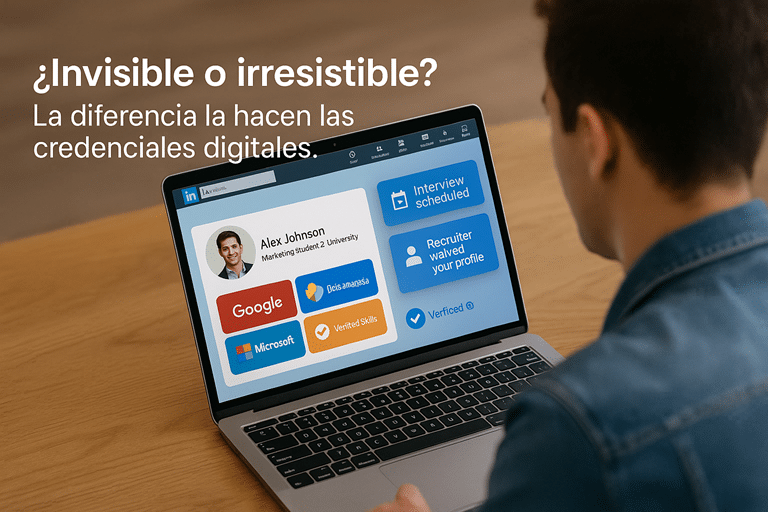In the academic field, one of the most serious and worrying problems is the presence of false academic degrees. The falsification of diplomas and certificates not only undermines the integrity of the education system, but can also have negative consequences for both individuals and society at large. Fortunately, there is an innovative solution that can effectively address this problem: digital credentials backed by blockchain technology. In this article, we will explore how digital credentials can help eradicate the problem of fake academic degrees, providing trust, security and transparency in the educational field.
Impact of fake academic degrees
Fake academic degrees refer to certificates and diplomas that have been falsified or acquired fraudulently, without meeting legitimate educational requirements. These misleading titles can be used by individuals to obtain improper advantages or to access job opportunities for which they are not qualified.

What are digital badges and their examples of use?
The existence of fake academic degrees has a detrimental impact on multiple levels. For individuals, it can lead to mistrust and loss of genuine opportunities for employment and career development. Furthermore, it undermines the credibility of educational institutions and makes it difficult for employers to select qualified candidates, generating imbalances and distortions in the labor market.
Digital Credentials as a solution
Digital credentials are electronic records that represent an individual’s achievements, skills, and qualifications. These credentials may include detailed information about academic programs completed, certifications earned, and competencies acquired. Unlike physical documents, digital credentials are securely stored and verified in a digital environment.
Digital credentials offer numerous benefits compared to traditional academic degrees. Some key benefits include:
Authenticity and verifiability
Digital credentials backed by blockchain technology offer a high level of security and authenticity. Records on the blockchain ensure that credentials cannot be modified or falsified, making them easier to verify by third parties.
Portability and accessibility
Digital credentials are easily accessible through online platforms, allowing individuals to conveniently share and present their achievements. Additionally, these credentials can be securely transferred between different institutions and employers, eliminating the need to send physical documents.
Cost and waste reduction
By opting for digital credentials, you reduce the costs associated with issuing and storing physical documents. In addition, it contributes to the preservation of the environment by minimizing the use of paper and natural resources.
How blockchain technology works
Blockchain technology is a decentralized and distributed digital ledger that securely stores information in linked blocks. Each block contains a record of transactions or data and is cryptographically protected. The decentralized nature of the blockchain ensures the immutability and integrity of stored data.
Blockchain technology offers key features that make it especially suitable for supporting digital credentials:
Immutability
Once credential records are stored on the blockchain, they cannot be modified or deleted. This ensures the integrity and authenticity of the credentials over time.
Transparency and verifiability
Employers, educational institutions, and other interested parties can access records on the blockchain to verify the authenticity of credentials presented. This eliminates the need to rely on physical documents and manual processes that are prone to errors and falsifications.

The adoption of digital credentials
Currently, various educational institutions and organizations are exploring and implementing blockchain-backed digital credential solutions. These initiatives seek to improve confidence and efficiency in the verification of academic degrees, driving the adoption of common standards and interoperable platforms.
It might interest you: What relationship do digital credentials have with the blockchain?
Educational institutions can benefit from the adoption of digital credentials with blockchain by improving the security and authenticity of the degrees they issue. Furthermore, this allows them to be at the forefront of technological innovations and meet the demands of an increasingly digitalized labor market. On the other hand, employers benefit by being able to quickly verify the authenticity of applicants’ qualifications and skills, improving the quality and efficiency of hiring processes.
The problem of fake academic degrees can be eradicated by implementing digital credentials backed by blockchain technology. These credentials offer a secure, reliable and transparent solution to verify and authenticate individuals’ educational and professional achievements. By leveraging the immutability and transparency of blockchain technology, educational institutions and employers can strengthen trust in the education system and promote equal opportunity in the labor market.
Subscribe to blog here and receive all our content







